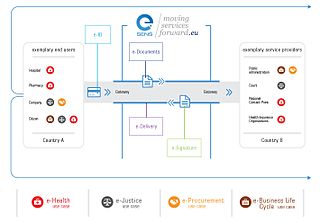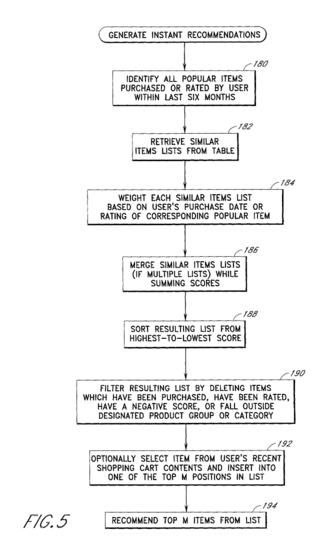
The European Ombudsman is an inter-institutional body of the European Union that holds the institutions, bodies and agencies of the EU to account, and promotes good administration. The Ombudsman helps people, businesses and organisations facing problems with the EU administration by investigating complaints, as well as by proactively looking into broader systemic issues. The current Ombudsman is Emily O'Reilly.

The Directorate-General for European Civil Protection and Humanitarian Aid Operations, formerly known as the European Community Humanitarian Aid Office, is the European Commission's department for overseas humanitarian aid and for civil protection. It aims to save and preserve life, prevent and alleviate human suffering and safeguard the integrity and dignity of populations affected by natural disasters and man-made crises. Since September 2019, Janez Lenarčič is serving as Commissioner for Crisis Management in the Von der Leyen Commission, and since 1 March 2023, Maciej Popowski leads the organisation as the Director-General.

Markets in Financial Instruments Directive 2014, commonly known as MiFID 2, is a legal act of the European Union (EU). Together with Regulation No 600/2014 it provides a legal framework for securities markets, investment intermediaries, in addition to trading venues. The directive provides harmonised regulation for investment services of the member states of the European Economic Area — the EU member states plus Iceland, Norway and Liechtenstein. Its main objectives are to increase competition and investor protection, as well as level the playing field for market participants in investment services. It repeals Directive 2004/39/EC.
The digital economy is a portmanteau of digital computing and economy, and is an umbrella term that describes how traditional brick-and-mortar economic activities are being transformed by the Internet and World Wide Web technologies.
Data portability is a concept to protect users from having their data stored in "silos" or "walled gardens" that are incompatible with one another, i.e. closed platforms, thus subjecting them to vendor lock-in and making the creation of data backups or moving accounts between services difficult.
In communication, media are the outlets or tools used to store and deliver content; semantic information or subject matter of which the media contains. The term generally refers to components of the mass media communications industry, such as print media, publishing, the news media, photography, cinema, broadcasting, digital media, and advertising.

On 6 May 2015, the European Commission, led at the time by Jean-Claude Juncker, established the Digital Single Market strategy, intended to remove virtual borders, boost digital connectivity, and make it easier for consumers to access cross-border online content across the European Union. The Digital Single Market, which is one of the Commission's 10 political priorities, aims to fit the EU's single market for the digital age, moving from 28 national digital markets to a single one, and then opening up digital services to all citizens and strengthen business competitiveness in the digital economy. In other words, the Digital Single Market is a market characterized by ensuring the free movement of people, services and capital and allowing individuals and businesses to seamlessly access and engage in online activities irrespective of their nationality or place of residence. Fair competition conditions and a high level of protection of personal and consumer data are applied.
CIDSE, which is short for "Coopération Internationale pour le Développement et la Solidarité", is an umbrella organization for Catholic development agencies from Europe and North America.
Algorithmic transparency is the principle that the factors that influence the decisions made by algorithms should be visible, or transparent, to the people who use, regulate, and are affected by systems that employ those algorithms. Although the phrase was coined in 2016 by Nicholas Diakopoulos and Michael Koliska about the role of algorithms in deciding the content of digital journalism services, the underlying principle dates back to the 1970s and the rise of automated systems for scoring consumer credit.

Algorithmic bias describes systematic and repeatable errors in a computer system that create "unfair" outcomes, such as "privileging" one category over another in ways different from the intended function of the algorithm.
The once-only principle is an e-government concept that aims to ensure that citizens, institutions, and companies only have to provide certain standard information to the authorities and administrations once. By incorporating data protection regulations and the explicit consent of the users, the public administration is allowed to re-use and exchange the data with each other. The once-only principle is part of the European Union's (EU) plans to further develop the Digital Single Market by reducing the administrative burden on citizens and businesses.

Media independence is the absence of external control and influence on an institution or individual working in the media. It is a measure of its capacity to "make decisions and act according to its logic," and distinguishes independent media from state media.
ACM Conference on Fairness, Accountability, and Transparency is a peer-reviewed academic conference series about ethics and computing systems. Sponsored by the Association for Computing Machinery, this conference focuses on issues such as algorithmic transparency, fairness in machine learning, bias, and ethics from a multi-disciplinary perspective. The conference community includes computer scientists, statisticians, social scientists, scholars of law, and others.
Regulation of algorithms, or algorithmic regulation, is the creation of laws, rules and public sector policies for promotion and regulation of algorithms, particularly in artificial intelligence and machine learning. For the subset of AI algorithms, the term regulation of artificial intelligence is used. The regulatory and policy landscape for artificial intelligence (AI) is an emerging issue in jurisdictions globally, including in the European Union. Regulation of AI is considered necessary to both encourage AI and manage associated risks, but challenging. Another emerging topic is the regulation of blockchain algorithms and is mentioned along with regulation of AI algorithms. Many countries have enacted regulations of high frequency trades, which is shifting due to technological progress into the realm of AI algorithms.
The regulation of artificial intelligence is the development of public sector policies and laws for promoting and regulating artificial intelligence (AI); it is therefore related to the broader regulation of algorithms. The regulatory and policy landscape for AI is an emerging issue in jurisdictions globally, including in the European Union and in supra-national bodies like the IEEE, OECD and others. Since 2016, a wave of AI ethics guidelines have been published in order to maintain social control over the technology. Regulation is considered necessary to both encourage AI and manage associated risks. In addition to regulation, AI-deploying organizations need to play a central role in creating and deploying trustworthy AI in line with the principles of trustworthy AI, and take accountability to mitigate the risks. Regulation of AI through mechanisms such as review boards can also be seen as social means to approach the AI control problem.

The Digital Services Act is a regulation in EU law to update the Electronic Commerce Directive 2000 regarding illegal content, transparent advertising, and disinformation. It was submitted along with the Digital Markets Act (DMA) by the European Commission to the European Parliament and the Council on 15 December 2020. The DSA was prepared by the Executive Vice President of the European Commission for A Europe Fit for the Digital Age Margrethe Vestager and by the European Commissioner for Internal Market Thierry Breton, as members of the Von der Leyen Commission.

The Artificial Intelligence Act is a European Union regulation on artificial intelligence in the European Union. Proposed by the European Commission on 21 April 2021 and not yet enforced, it aims to introduce a common regulatory and legal framework for artificial intelligence.
Automated decision-making (ADM) involves the use of data, machines and algorithms to make decisions in a range of contexts, including public administration, business, health, education, law, employment, transport, media and entertainment, with varying degrees of human oversight or intervention. ADM involves large-scale data from a range of sources, such as databases, text, social media, sensors, images or speech, that is processed using various technologies including computer software, algorithms, machine learning, natural language processing, artificial intelligence, augmented intelligence and robotics. The increasing use of automated decision-making systems (ADMS) across a range of contexts presents many benefits and challenges to human society requiring consideration of the technical, legal, ethical, societal, educational, economic and health consequences.
The Platform Work Directive is a proposed European Union Directive on the regulation of platform work in EU law.

The Regulation to Prevent and Combat Child Sexual Abuse is a European Union regulation proposed by the European Commissioner for Home Affairs Ylva Johansson on 11 May 2022. The stated aim of the legislation is to prevent child sexual abuse online through the implementation of a number of measures, including the establishment of a framework that would make the detection and reporting of child sexual abuse material (CSAM) by digital platforms a legal requirement within the European Union.










